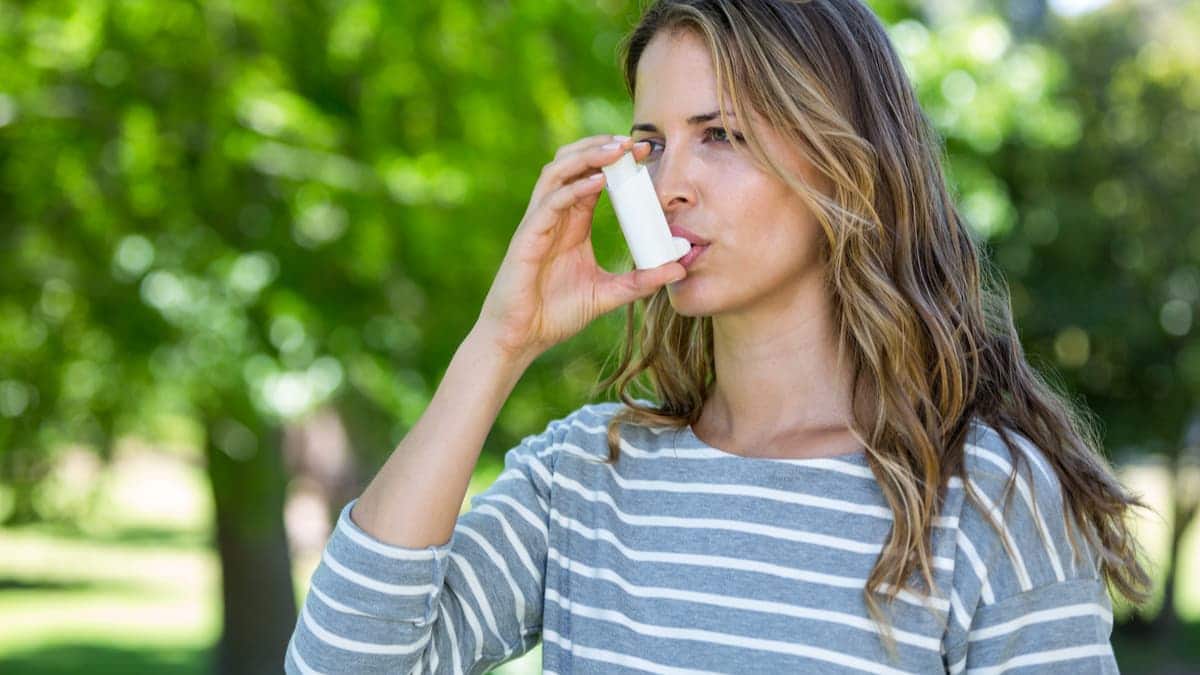Blog
Caffeine Can Reduce Exercise-Induced Asthma
Caffeine is a marvelous substance. Research has shown that it can help burn fat and reduces pain during and after exercise. This means that caffeine can help people lose weight, which is important for overall health and wellness.
Other research has shown particularly good benefits for women. A recent study found that moderate caffeine use reduced instances of dementia and other cognitive impairment as women age by 36%! Not to worry men, caffeine has an overall beneficial effect on brain health and reduction of dementia by helping to remove plaque in the brain. So, everyone can drink more caffeine to help protect against dementia.
Well, the good news keeps on coming when it comes to caffeine. A study at Indiana University discovered that taking caffeine before exercising can help with exercise-induced asthma.
Exercise-induced asthma, or more accurately, exercise-induced bronchoconstriction, happens when the airways in the lungs narrow as a result of intense exercise. It technically isn’t asthma since asthma can be triggered by many other things. And everyone who has exercise-induced bronchoconstriction doesn’t have asthma. This condition causes wheezing, shortness of breath, and coughing during or after exercise.
For those who suffer from exercise-induced asthma, there is good news for you about how to alleviate your symptoms and get you back to the gym!
The Indiana University Study
An Indiana University (IU) study found that the ingestion of caffeine within an hour of exercise can reduce the symptoms of exercise-induced asthma (EIA). The caffeine study involved 10 asthmatic subjects who had EIA, in a randomized, double-blind double-dummy crossover study. The volunteers ingested 3, 6, or 9 milligrams of caffeine per kilogram of body weight, or a placebo, an hour before running on a treadmill.
Pulmonary (lung) function tests were conducted 15 minutes before the eucapnic voluntary hyperpnea challenge (a surrogate for an exercise challenge) and then again 1, 5, 10, 15, and 30 minutes afterward. The results show that a large dose — 9 milligrams of caffeine per kilogram of body weight — was as effective as the use of an albuterol inhaler, a common medication for treating or preventing exercise-induced asthma.
Smaller amounts of caffeine — 3 and 6 milligrams of caffeine per kilogram of body weight — also reduced the wheezing, coughing, and other symptoms of EIA. For a person weighing 150 pounds, 3 to 9 milligrams of caffeine per kilogram of body weight equals around 200 to 600 milligrams of caffeine.
The results of this study are particularly promising, given the issues with other asthma treatments. The prolonged use of medications such as albuterol can result in reduced effectiveness. In addition, there is growing concern about the potential side effects of inhaled corticosteroid use. The IU study suggests that caffeine may be a good alternative in reducing EIA symptoms and severity.
Seattle Gummy Energy Chews
Seattle Gummy Company is proud to offer two different caffeinated energy chews. They have a pre-workout performance gummy called The Energon Qube Power Up. This delicious strawberry-flavored gummy contains caffeine to give you energy for your workout and reduce your symptoms of EIA. The Energon Qube Power Up also contains complementary complex carbohydrates that rapidly raise and sustains energy. They also contain a vitamin B complex for boosting performance, and the herb ginseng which helps with endurance. With the Seattle Gummy Energon Qube Power Up, you can reduce your EIA symptoms and give yourself an overall boost for your next workout.
Seattle Gummy also makes another caffeinated gummy called the Mocca Shot. The Mocca Shot contains 200mg of caffeine, and while it is not formulated as a workout gummy, many athletes use the Mocca Shot during or after their workouts for an energy boost. The Mocca Shot contains brain smart herbs and vitamins like ginkgo biloba which helps brain circulation, Vitamin Bs, and antioxidant-rich Dutch cocoa powder.
All of Seattle Gummy’s energy chews are gluten-free and made right here in the USA! Put one of their non-melting gummy packs in your pocket or purse for a brain and energy boost whenever you need it.
Journal Reference:
- Timothy A. VanHaitsma et al., Comparative and Synergistic Effects of Caffeine and Albuterol on The Severity of Exercise-Induced Bronchoconstriction, American College of Sports Medicine Conference, 2019
- Indiana University. “Caffeine Shown As Effective At Reducing Exercise-induced Asthma Symptoms As An Albuterol Inhaler.” ScienceDaily. ScienceDaily, 1 June 2009. <www.sciencedaily.com/releases/2009/05/090531102507.htm>.

